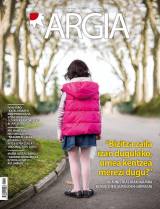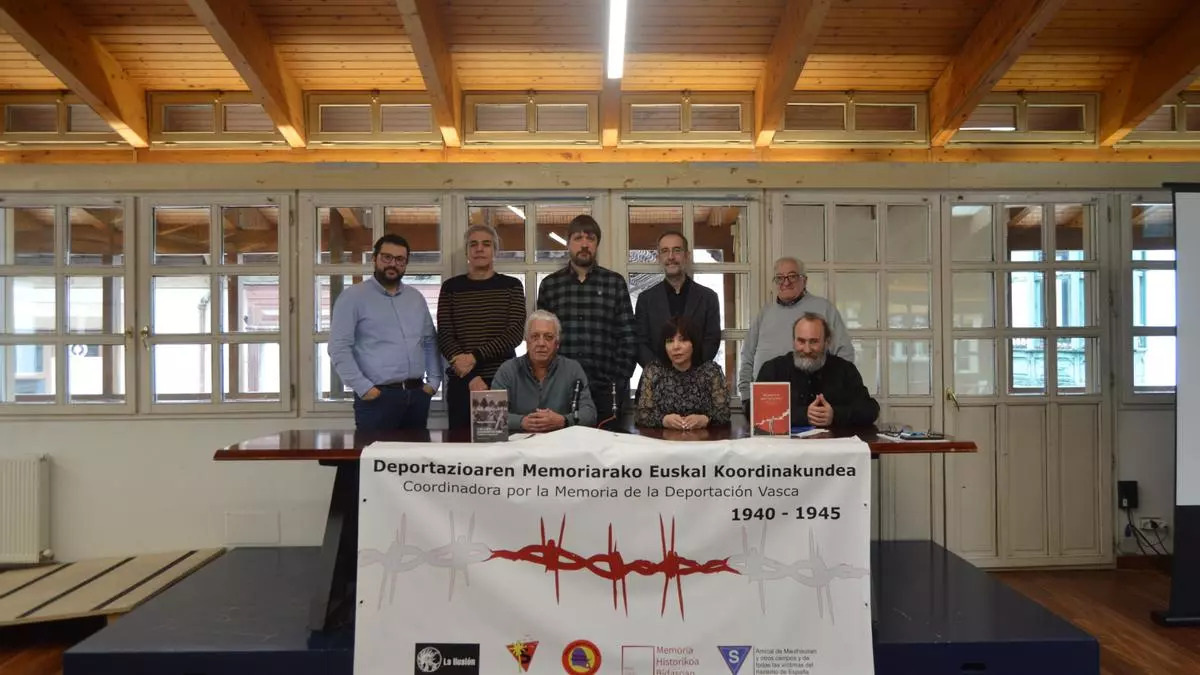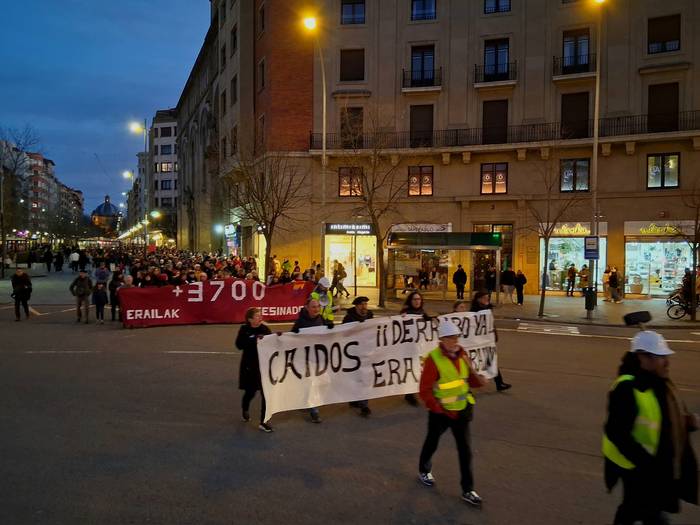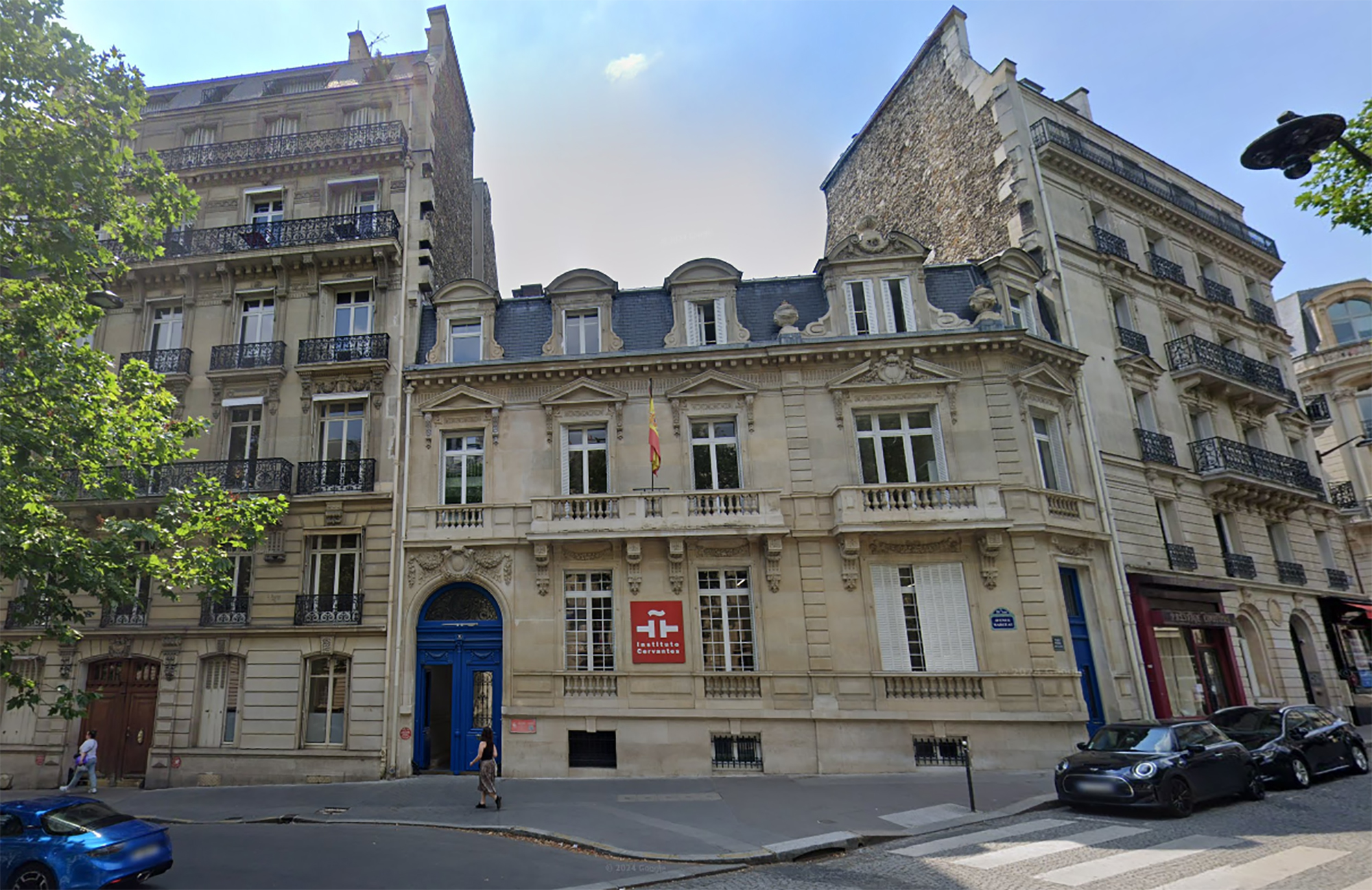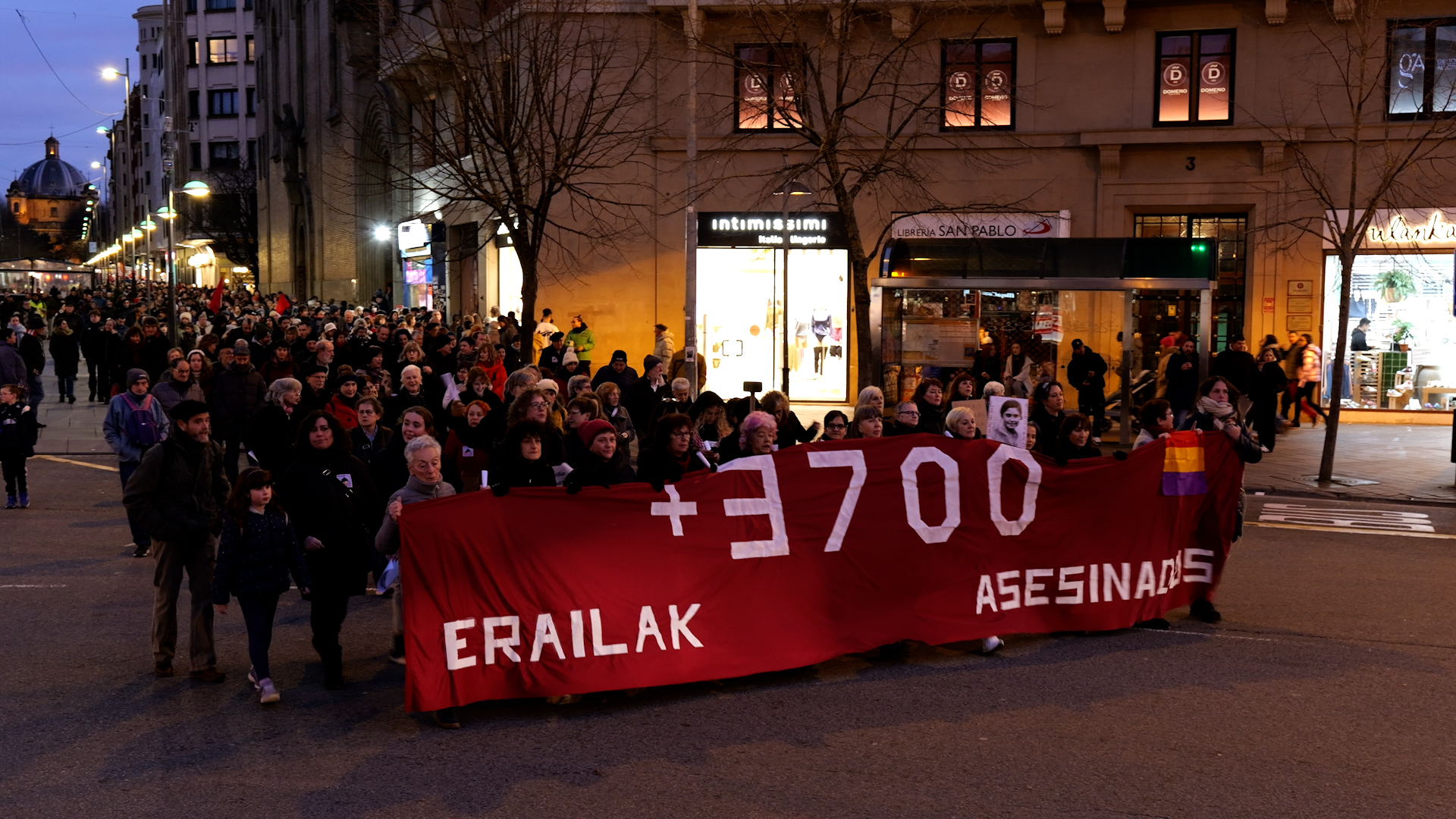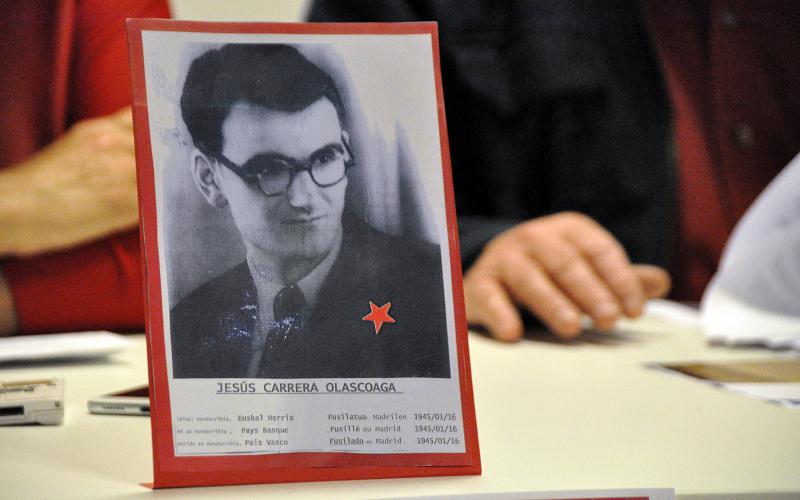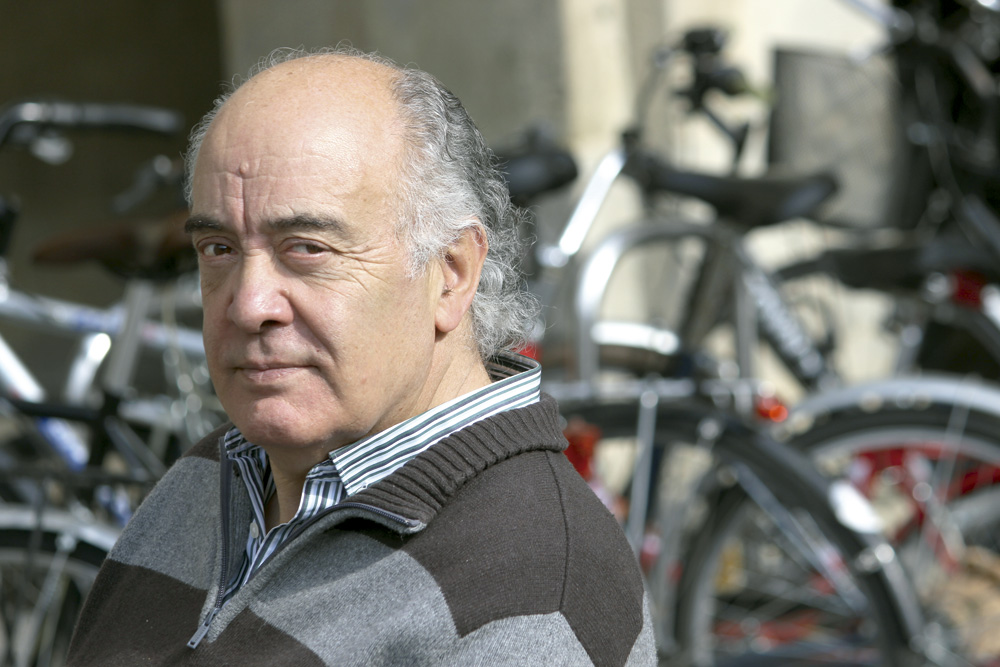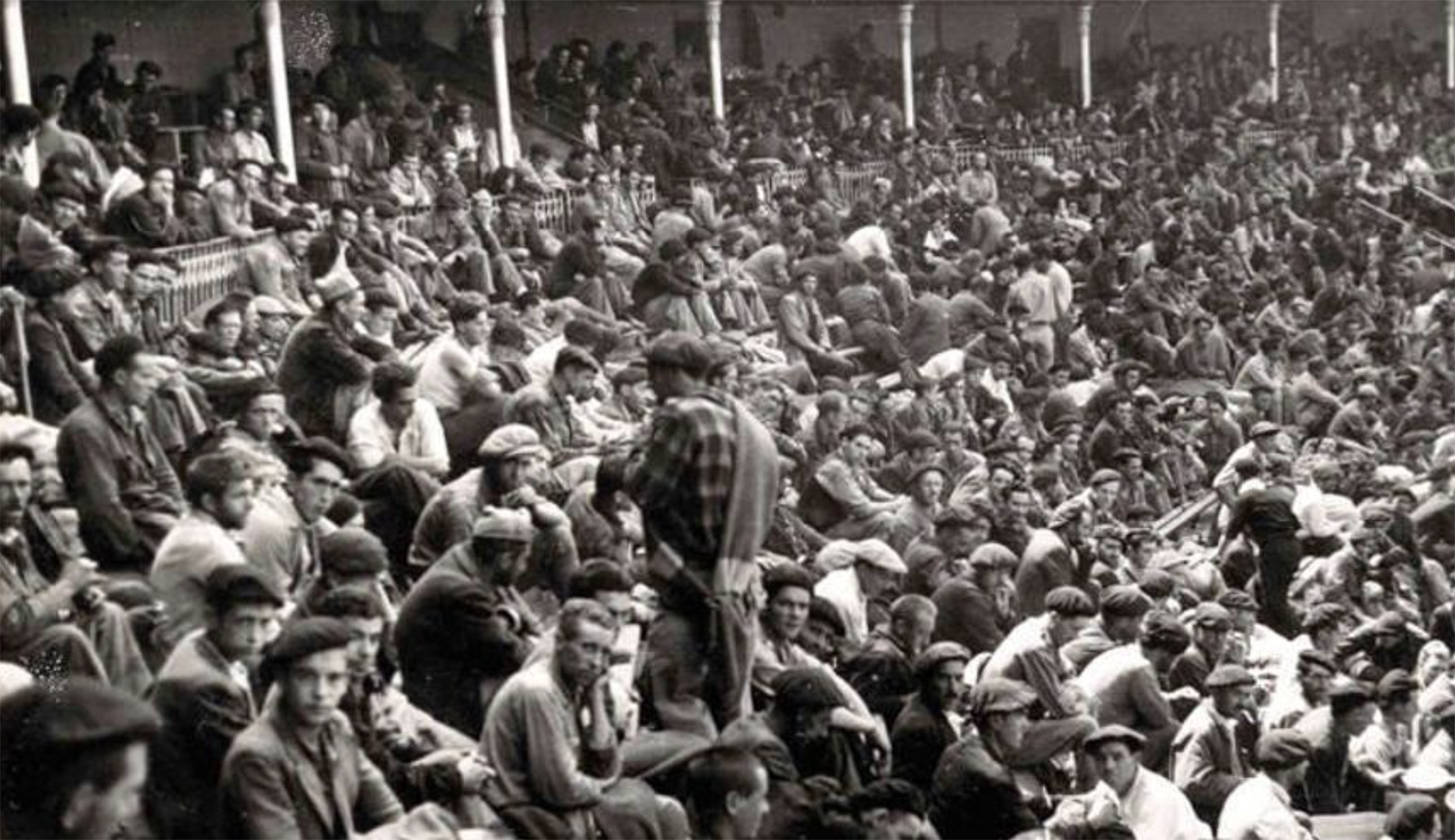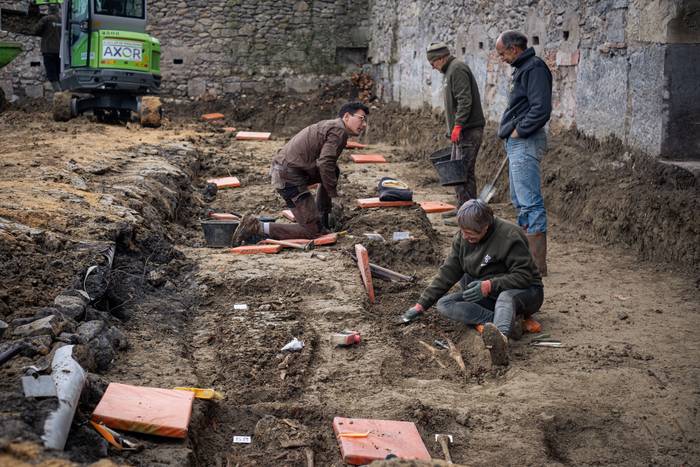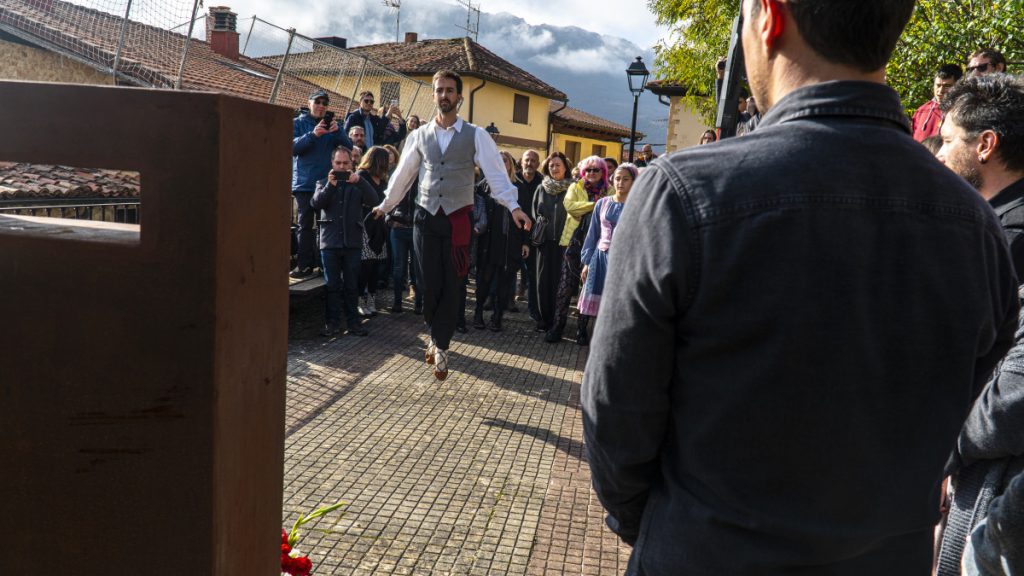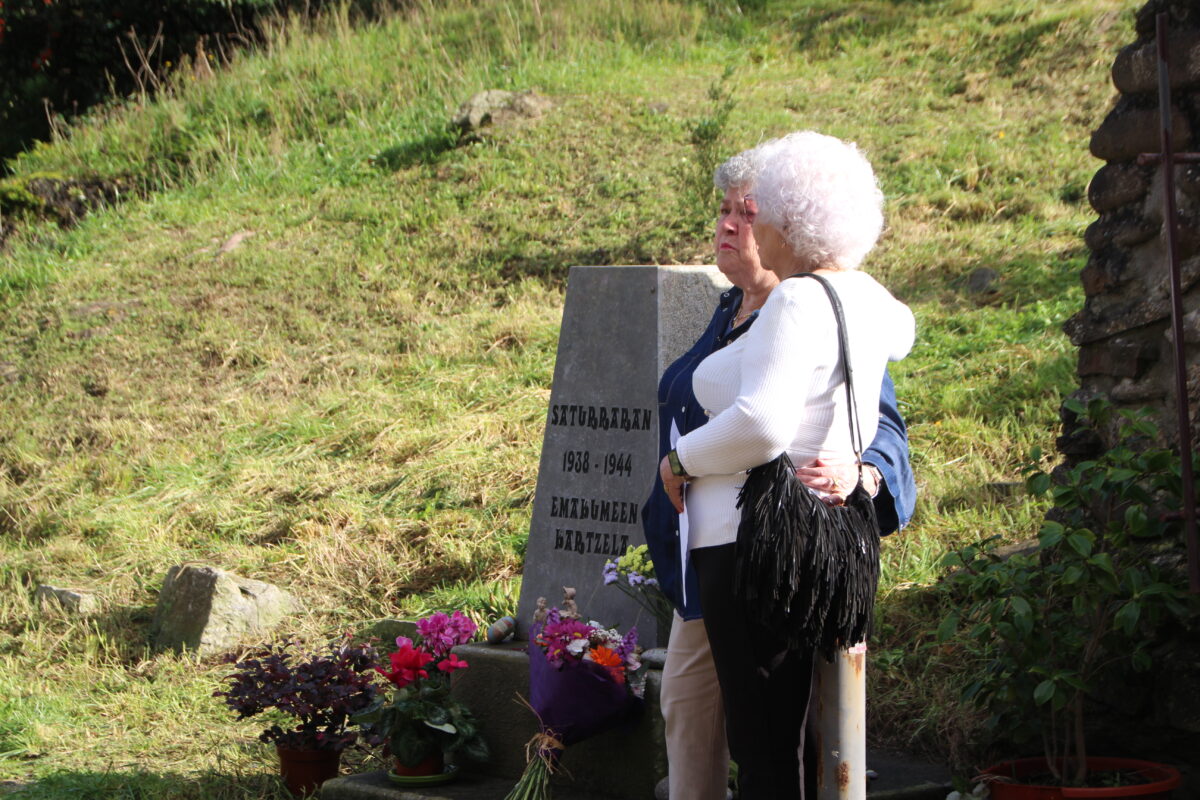"We accept Euskera batua in Carabanchel prison"
- He was a witness and friend of the passage of the Basque Country through Vitoria in the heart of the 1960s. The cultural struggle was as political as ever, and so did the civil guards, as always, and put him in the pit, far from Euskal Herria.
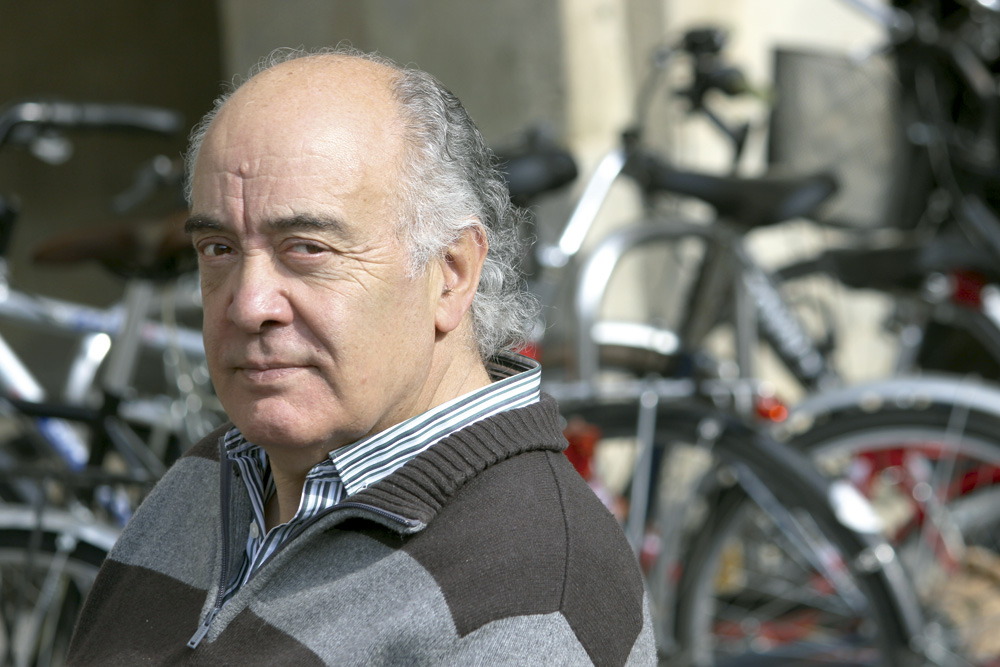
Garai bateko egoeraren lekuko da Gasteizen, gerra ondoko frankismoarena. Euskararen pizkundea bizi izan zuen, 1958ko euskarazko eskolak eta mugimendu haren eragileak. Banketxean lan eginez atera zuen bizia 1962az gero, nahiz eta euskara irakasle ere izan zen urte askoan. Fontaneda.net helbidean da interneten, non euskararen gramatikaren edukiak eta 2009an Oiongo Araba Euskaraz-en karietara egindako dokumentala ere ageri baitira. Babazorro bloga abiarazi du ARGIAn bertan.
You were born in Vitoria, and you grew there.
On Calle de los Herrán, at the point where Vitoria ended. On the other hand, there was the high of Judimendi, the center of inspiration of the vitorians, where we went with the potato tortilla. Beyond that, they were houses built in the time of the Republic, “cheap houses”, today appreciated chalets of the Avenida de Estibalitz. And there was also the Maltzaga train station heading to Estella. And nothing else... My father died at the age of 4, my widow mother, she started working in the Kindergarten.
“Kindergarten”?
Yes. The Social Service for Women of the Spanish Phalanx, let's say. It was a nursery for the poorest people in Vitoria-Gasteiz. I wondered how long it would take to sing Face to the Sun. In the morning, by collecting the flag of Spain, Face to the sun, and in the afternoon, by lowering the flag of Spain. Regarding education, Franco and José Antonio [Primo Rivera] were there completely present. The mother had been a kindergarten cook, where she worked with other workers. He's working in the kitchen, I'm a kid, in the nursery. The rest of the children went home at seven in the afternoon. I stayed with my mother until he finished working. At school age, I started Samaniego school. At lunch time, my friends left and I settled in the Kindergarten.
He lived in the post-war period.
Yes, yes. Then I had a teacher, Teresa, blind, who greeted me next to me to adjust accounts. We wanted a lot. Through him, a department of the Phalanx awarded me a baccalaureate scholarship at the Sacred Heart College, and it was at that center that the change occurred. We were in high school. An Ibarrangelu boy named Arrotegi was next to me. After Christmas, when we told each other a holiday, Arrotegi taught me a coin of two pesetas. On one side, there was the figure of a woman with a frigio hat saying “Government of Euzkadi”. I asked him if that woman was Euzkadi, and he attacked me with clubs. “Euzkadi is the homeland of all Basques,” he told me. All in Spanish, of course.
Much later you learned Basque.
Yes, and at that time and environment in Vitoria, because otherwise Castilian was the only language. Until Arrotegi told me, I believed that the only homeland was Spain. “The homeland of all the Basques”… Arrotegi did not stop, Franco blew, stood up against the government and this and that. He told me the opposite of what I had heard until then.
What has been learned so far, on the one hand, what Arrotegi has told you, on the other.
I decided the matter by going to the public library. They had the Espasa encyclopedia, and there they said everything. Euzkadi, Spanish Movement, The Uprising of July 18… They still have the encyclopedia in the library. “That’s right, Arrotegi is right!” We were in January 1958, and in October of that year I started studying in Basque.
In 1958 in those schools of the Ramiro de Maeztu Institute of Vitoria-Gasteiz, now Basque parliament?
Yes, I had to be a convinced Euskaldun. I found out about the classes and left. No police had had any problems. We had as a professor Peli López Presa, with a dozen students. Peli was a very applied professor, a passionate Euskaltzale. He used Andoni Urrestarazu Umandi's grammar as a method. After two years and when the classes were over there, Peli Presa told us to go to Jesús Laboral School. Then, the School of Arts and Workers also taught Euskera… Things moved, changed.

Peli López Presa always you teachers.
At Jesus the Worker's School we had the police visit and had to leave there, to Peli Presa's house. Peli had helpers, Barrueta, Peli Martin Latorre... And then, when I left jail, there were more groups and more teachers. I remember there was also one from Gernika, Pertika, who lived in Vitoria after being exiled in Córdoba. His car also had a license plate from Córdoba and people opposed it: “You, Andalusian!” He, for his part, made them quiet in Basque.
You were also a professor at that time.
I started teaching without knowing Euskera, in 1966. In the diocese school, which is now on the university campus. There I was professor Felipe Ibarraran, but I was going to go to military service and he offered to give me those classes, and as I knew something – not much – I directed that group from October to June 1967. I couldn't finish the course because I had been taken civilian guards.
You knew Euskera.
Little. We also taught, maybe we taught in Spanish. When in the early 1970s the group of professors Juan Bautista Gamiz was created, then yes, we did the method in Basque. Eusebio Osa, Pako Eizagirre, Jeni Prieto… we were several teachers. We did the method, our style. His name spoke. The formation of the verb - nor-, nork and beste - was done by me; Eusebio Osa, the texts, the workers go up and the elders come down; and Maribel Elizondo hit the material machine. Before, the grammar of Umandi, and later, the Basque of Patxi Altuna, your friend! We use the call. I remember that we didn’t know what “you” was and that we had to ask or look in a book.
You told us that you did not complete your first year as a teacher. You were arrested in June 1967.
This is the day of Mount San Vitor at the gates of summer. At that time, the police did not reach the mountain and in that year there was a real disaster among the EGI members. The ikurrina, the screams of the other… Even though the civil guard did not get there, someone saw what those young people were doing and denounced them. And they both proceeded to arrest people. First those of the PNV and then all the others. I wasn't on the mountain, but when the detainees started pasting, asking for names, one said mine and he was already, he took me to jail with many others. There were about twenty boys and a girl.
We know it for them: among those children was Jesús Estrada [ARGIA, 2.087 ppm.] As for the girl, Arantxa was Aretxandieta [ARGIA, 2.105 ppm]. ].
Yes, it was Jesus Estrada. Jesus and another sabotaged a television antenna on Mount Olarizu as a football match was broadcast. They had cut off the broadcast or damaged the antenna, at least!
Jesus Estrada told us that they had beaten you.
Yes. I beat everybody. However, it was not the torture that we would later know: the bathtub and those. For example, I was beaten, even by Lieutenant Colonel. It takes interior, sending and touching. Not only did they beat me up, but they put some tablets between my fingers and squeezed me. What pain! Torture of the civil guard was common practice throughout the country. At the same time, psychological pressure. They knew I had a widow's mother and they would tell me, while they were hitting me. “If you don’t tell us everything, we will bring you to your mother.” All the detainees were held in jail at Calle de la Paz, below us, boys, and above Arantxa, alone. I was surprised on 21 June and on 1 August we were all released on a provisional basis. The next year they stopped us again, and then I didn't get rid of it so easily, because it was the second time.

Second drop in 1968.
Yes, in the brigades Mass was said in Euskera, and there we were Arantxa Aretxandieta and I. We said: “If one of us is captured, the other can escape better.” Said and done. The civil guards came to search me and Arantxa left. On the other hand, when the police arrested Sabin Arana in Bilbao, the civil guard carried out a raid on the street. We were burned, the civil guard had heard of us since last year. And it entered in March 1968.
In the book that tells the story of the ikastola Olabide of Vitoria-Gasteiz, Peli Martín explains that in the course of 1967-1968 meetings began to be held in the shrine of Estibaliz with the aim of promoting the Basque Country and the Basque culture in Álava. But after the March meeting, two of the attendees were arrested and suspended.
Xabier Bareño Etxebarria and I. Bareño of Gernika died, released from ETA at that time. I was related to the prior of Estibaliz Isidro Baztarrika. It was my best teacher. Nor-angora, gave me the book The secret of the Basque verb and ruined me forever. Jajajajajajajajajajajajajajajajajajajajajajajajajajajajajajajajajajajajajajajajajajajajajajajajajajajajajajajajajajajajajajajajajajajajajajajajajajajajajajajajajajajajajajajajajajajajajajajajajajajajajajajajajajajajajajajajajajajajajajajajajajajajajajajajajajajajajajajajajajajajajajajajajajajajajajajajajajajajajajajajajajajajajajajajajajajajajajajajajajajajajajajajajajajajajajajajajajajajajajajajajajajajajajajajajajajajajajajajajajajajajajajajajajajajajajajajajajajajajajajajajajajajajajajajajajajajajajajajajajajajajajajajajajajajajajajajajajajajajajajajajajajajajajajajajajajajajajajajajajaj On the other hand, at that time it was very common to go from Vitoria to Estibaliz, and so we went Bareño and I, on foot.
The meeting took place on the first Sunday in March.
And not long after that, the civil guards came to work at the Bank. They took me to the quartelillo. Police arrested Sabin Arana and Koldo Grajales, who were arrested in Madrid by court order. The civil guards knew where we were going, we had met in the Ariznabarra neighborhood around the Basque classes. They knew about us. When I was hit, I was also asked about Stibaliz's meetings, but the accusation was that I was from ETA. Sabino Arana walked up and down. But it wasn't my threesome, and I didn't know. They didn't care, I went back to jail. With me, the detainees were released from prison on provisional release. I was in prison for three and a half years, and I did not know what it was in Vitoria after that meeting, but the ikastola went ahead.
Did the case of the Basque Country batua also strike you?
Yes, but we were obedient. We were at Carabanchel. We were doing a newspaper there, drawings of mine. They had the mania of using Carabanchel's pronouns. “That food! That Fontaneda!... The best known cry, however, was “That dinner!”. And so, us, Apari! We called the magazine. But soon it changed, the Dinner! He took his name. That is, that's where the Basque country changed for us. And we accept. Among friends, at home, in the game…, it seemed good to us that each one used his own Basque, the dialects and others, but if not, we needed the unified Basque, like all languages. Maybe it was a discussion, but that dinner! When it appeared, we had approved the Euskaltzaindia agreements. At Carabanchel we accept the Basque Country batua.
When it came out in 1971, what atmosphere was there in Vitoria?
The Basque groups were structured, teachers and students. As for politics, it was burned, the internal division of ETA was executed – between the fifth and the sixth that happened while in the jail in Jaén –, in the street of Vitoria there was more Euskera – although little – and in the rest, I did not notice great changes. Three years is little time to change anything at its root, unless it's a big event. The triple of March, for example, yes, changed things. For the rest, society is changing slowly.
You continued militating.
When he left prison in 1971 he did. I was ETA VI.ekoa, but the ones we were burned met apart, we were half militants. Around 1975 I joined the Spanish Workers’ Party PTE and in 1979 the party joined another ORT [Workers’ Revolutionary Party]. But it didn't last long either, as it disappeared in 1980. Then I ran out of political militancy. After I got out of jail, I started working at a construction material company. I couldn't go back to my previous job, the Biscayan Bank, because a month after the first conviction, when I was in jail, I got a letter from the bank telling me that I was left out of my job. In 1973, I started working in the Labor Fund until an amnesty occurred. Then, after the trade union battle, I was again received at the Banco Vizcaya in 1976. I left Caja Laboral and returned to the former Banco Vizcaíno, with dignity and dignity. I had not been militating for a long time, but I did not vote. I always give it, because before you could not even vote.
“Guardia zibilak bigarren aldiz harrapatu ninduenean, Estibalizko santutegira sartzen ikusi nindutela esan zidaten. Nik, baietz, bilera egin zela, baina kultur gaiak jorratu zirela han, bertan zela Isidro Baztarrika priorea ere, bilerak ez zuela ETArekin ez politikarekin ikustekorik. Eta egia zen”.
“Batzuk eta besteak ari ginen Gasteizen euskaraz irakasten garai hartan, baina ez genuen bata bestearen berririk. Aditua nuen Izaskun Arrue Zerkabarren kalean haurrei euskaraz irakasten ari zela, baina besterik ez. Esaterako, ez nuen inoiz Izaskun ezagutu”.
Bilbo, 1954. Hiriko Alfer eta Gaizkileen Auzitegia homosexualen aurka jazartzen hasi zen, erregimen frankistak izen bereko legea (Ley de Vagos y Maleantes, 1933) espresuki horretarako egokitu ondoren. Frankismoak homosexualen aurka egiten zuen lehenago ere, eta 1970ean legea... [+]
Deportazioaren Memoriarako Euskal Koordinakundeak aintzat hartu nahi ditu Hego Euskal Herrian jaio eta bizi ziren, eta 1940tik 1945era Bigarren Mundu Gerra zela eta deportazioa pairatu zuten herritarrak. Anton Gandarias Lekuona izango da haren lehendakaria, 1945ean naziek... [+]
Pamplona, 1939. At the beginning of the year, the bullring in the city was used as a concentration camp by the Francoists. It was officially capable of 3,000 prisoners of war, at a time when there was no front in Navarre, so those locked up there should be regarded as prisoners... [+]









